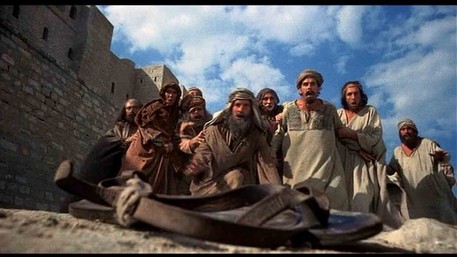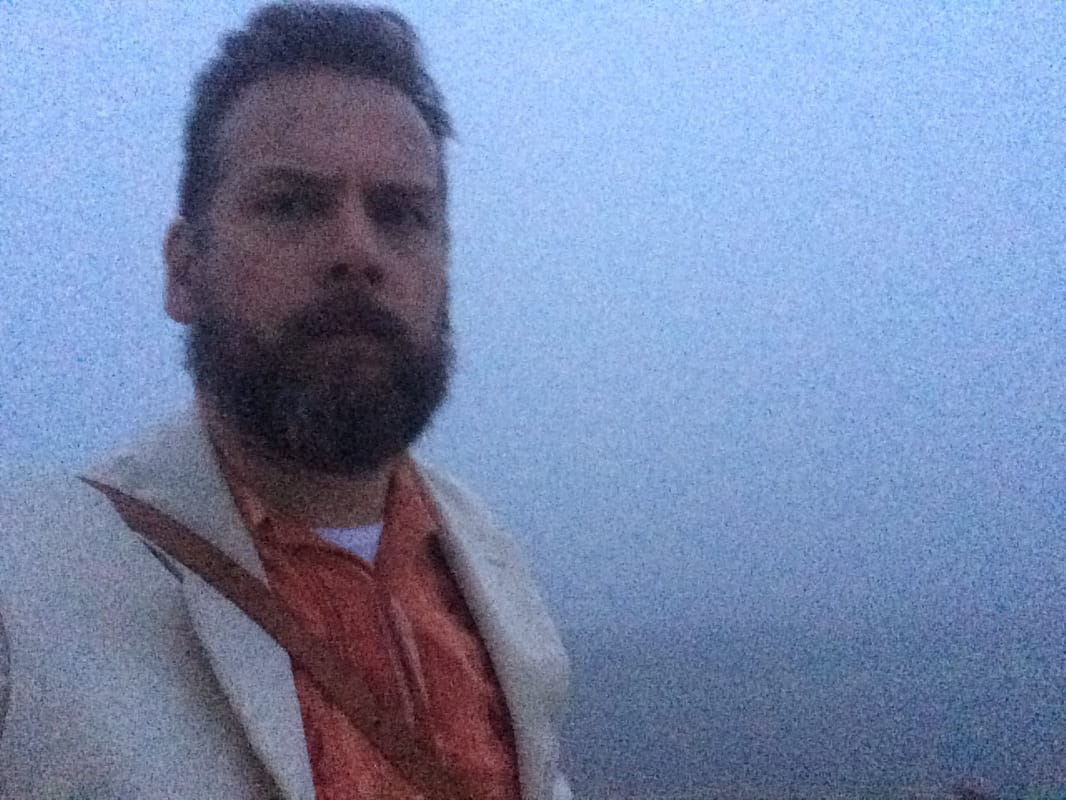 Several years ago, the year 2000 to be exact, I decided I was going to read all those books that people said they had read when in fact most people hadn't: Darwin, Freud, Marx, the Koran, the Bible, the Russians (Tolstoy and Dostoyevsky, then Chekov, Gogol and Grossman), Cervantes, Dickens (all of them), the Americans and so on. I managed mostly and very rewarding it was too, with some exceptions. A book I never got all the way through but I've been chipping away at ever since is the Bible. And recently I began picking at it again. I read the gospels when I was growing up and specifically Mark because our religion teachers told us it was 'the most Catholic gospel', which in itself tells you a lot about how denominations approach the Bible. Now I no longer believe in God, but I'm a Catholic atheist - 'The Fool hath said in his heart, "there is no God"' - and I revisit the Bible again and again with fascination. Sometimes, it's for the novels - Job is a particularly brilliant tale. Sometimes it's for the history/biography. The Jesus stuff always feels like a detective story. We have four witnesses to a crime but their versions are muddled and contradictory. Sometimes they don't even make sense standing alone and they're not consistent with the actual history. As often happens with witnesses, they're out to cover things up and shift the blame (see how Pontius Pilate gets let off and the Jews shoulder the guilt). Lurking through them is the sense that something actually happened, but what exactly is as unavailable to us as the distant future, more so. The future we'll eventually get to, but the past is irretrievable. I'm currently reading the Psalms. Whinging, pleading, threatening, bullying, coaxing, boasting and glorying and doubting. A lot of doubt. They are a cacophony. There's a great one I think 59 all about deliver me from my enemies, 'scatter them by thy power', great stuff. And then Psalm 60 begins 'O God, thou hast cast us off, thou hast scattered us'. Oops. W.H. Auden once spoke of different types of readers, one type would skip the genealogies, the lists of chieftains drawn up in battle order, the litanies and beatitudes because they were basically looking for the story. The other kind, including poets like Auden, would pour over those parts because it was about the language, the poetry, the sound, the effect of those words going through you regardless of whether you understood, like repeating the names of the dead, like a spell. A magic relationship to language. I'll readily admit to skipping my fair share and I still do. I love Thomas Pynchon, but his song-writing skills leave a lot to be desired and when ever he breaks into verse I let out a mild whoop and skip to the end. But increasingly I find myself lingering on the lists and the lines. The way Hunter S. Thompson claimed to have typed out The Great Gatsby, just to feel those words going through you. There's something to that.
1 Comment
Conleth
13/5/2014 07:32:14 am
My quite Catholic father says reading the Bible is undermining his faith.
Reply
Leave a Reply. |
AuthorJohn Bleasdale is a writer. His work has appeared in The Guardian, The Independent, Il Manifesto, as well as CineVue.Com and theStudioExec.com. He has also written a number of plays, screenplays and novels. Archives
March 2019
|
 RSS Feed
RSS Feed


